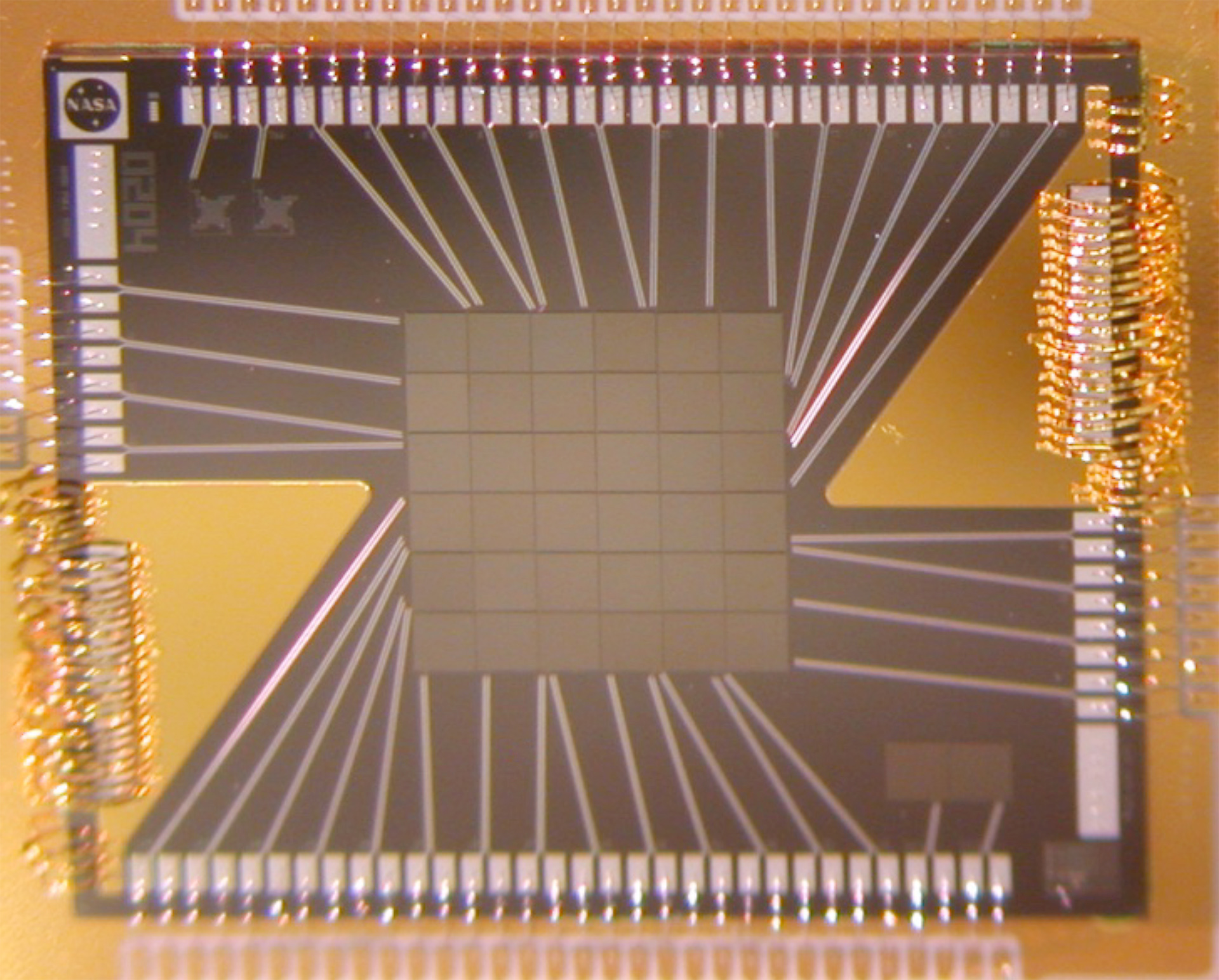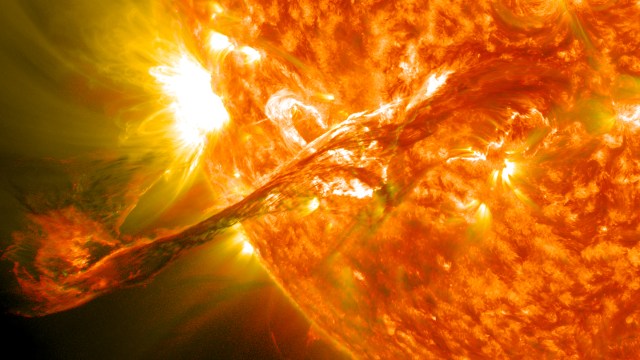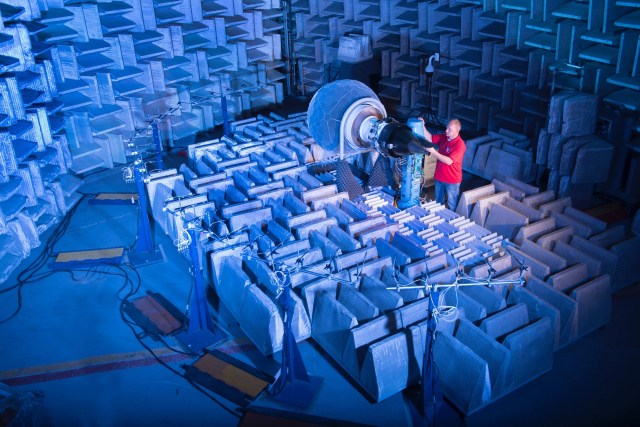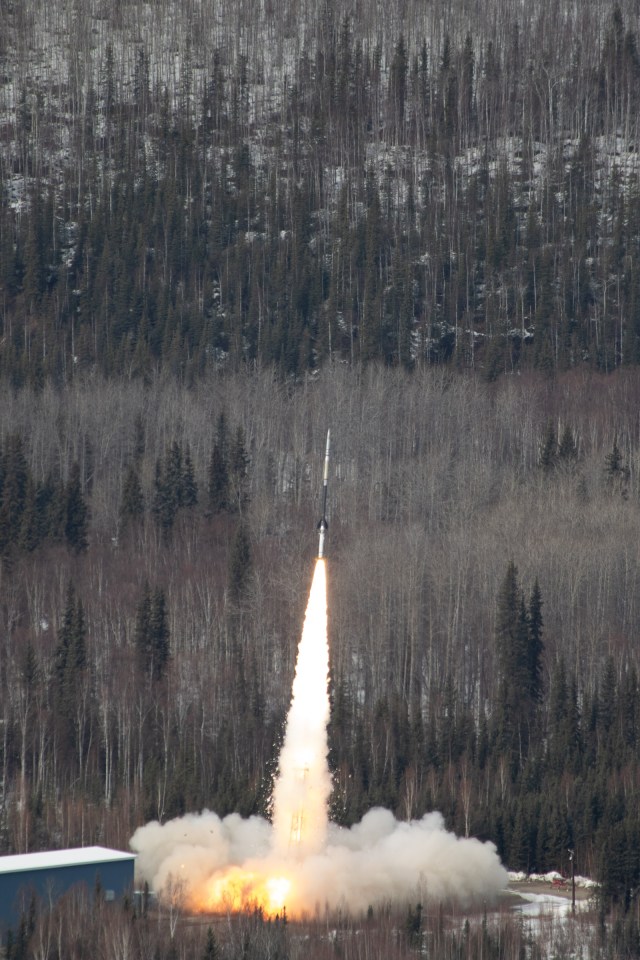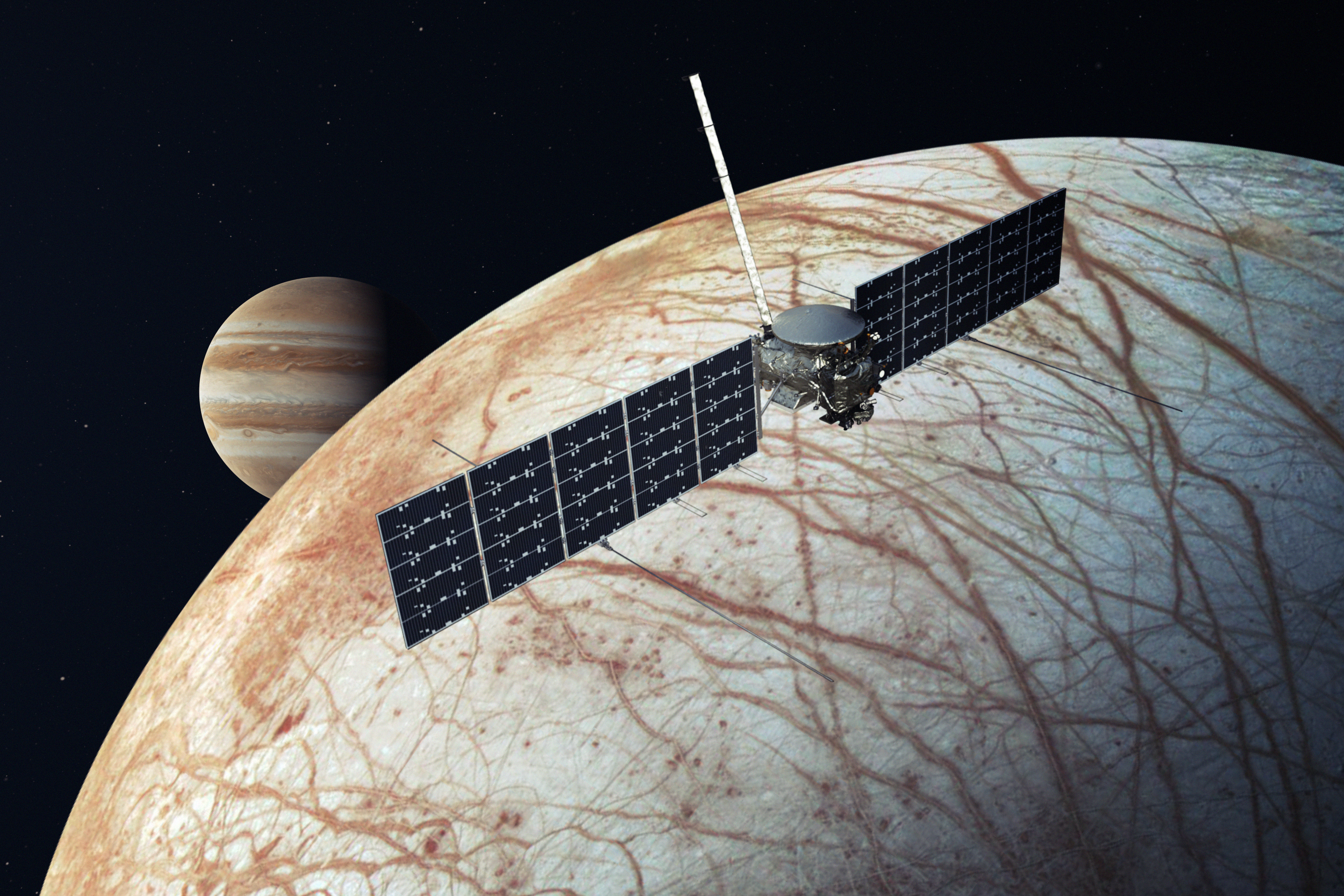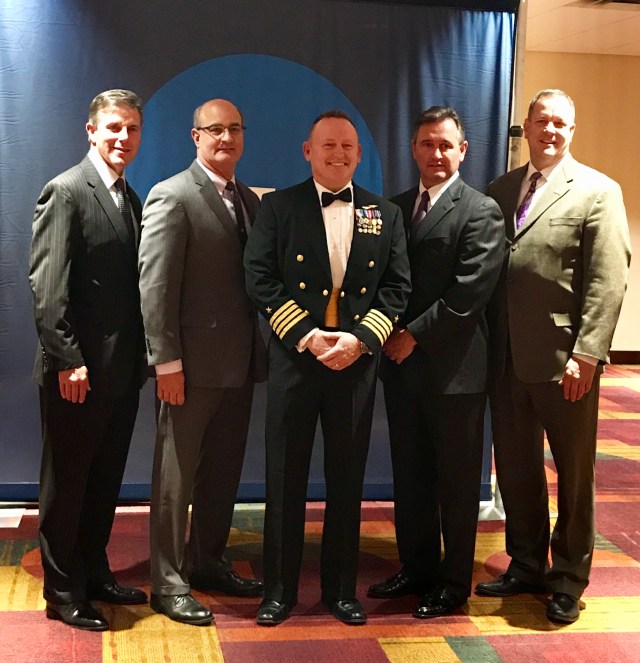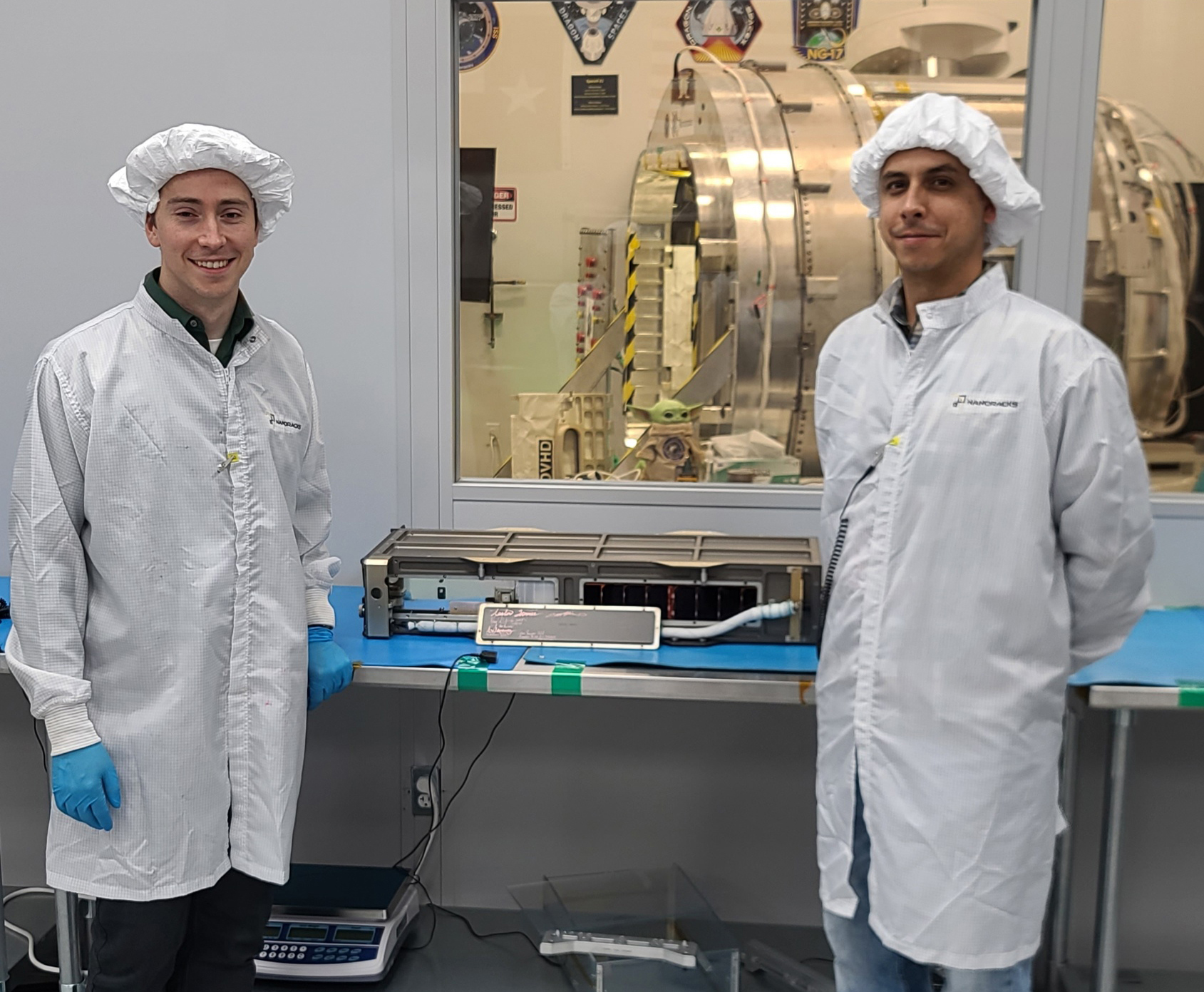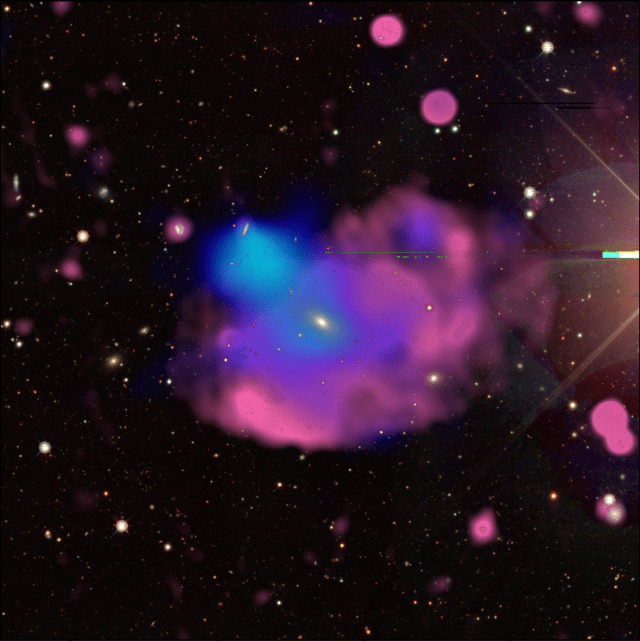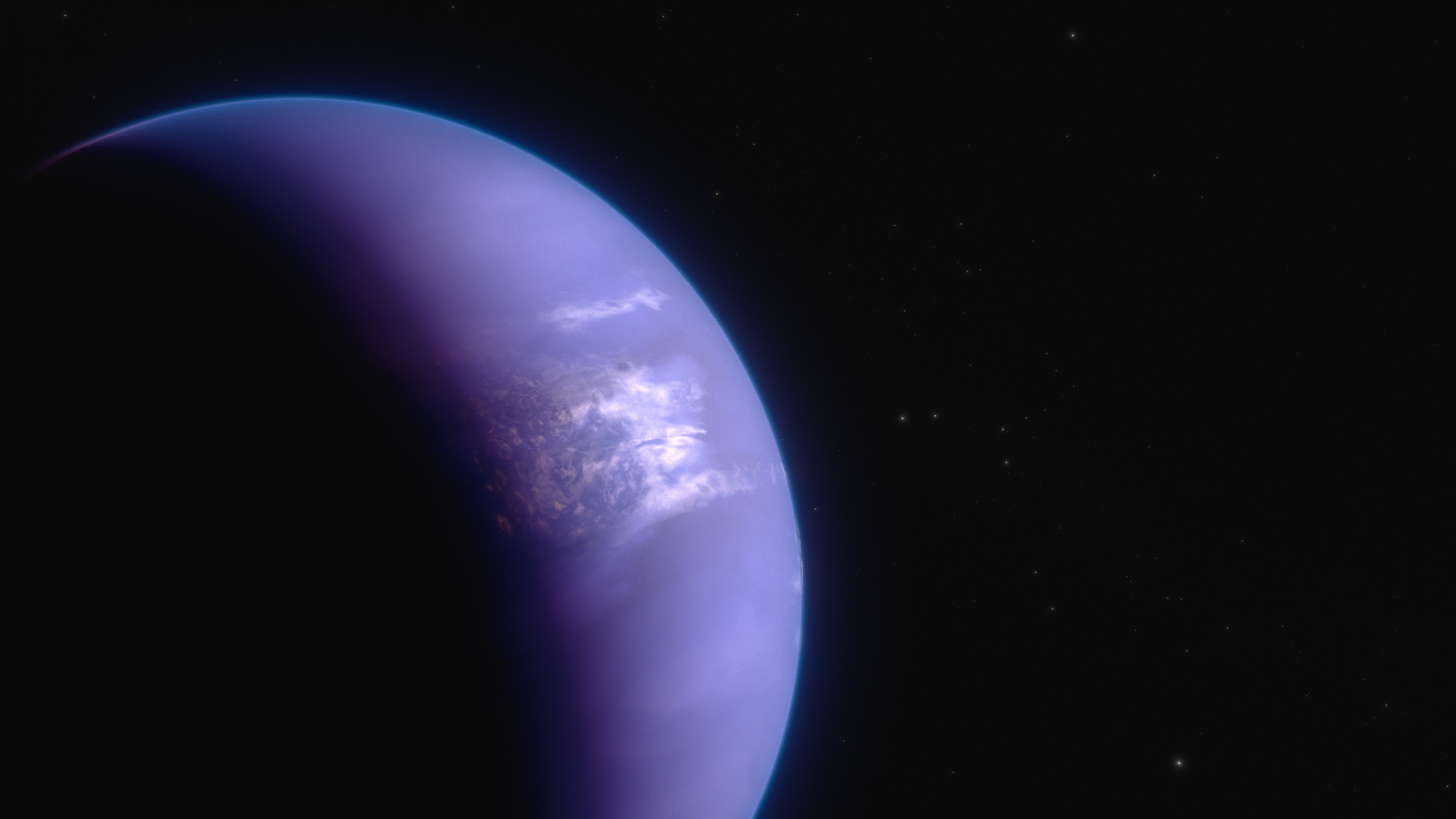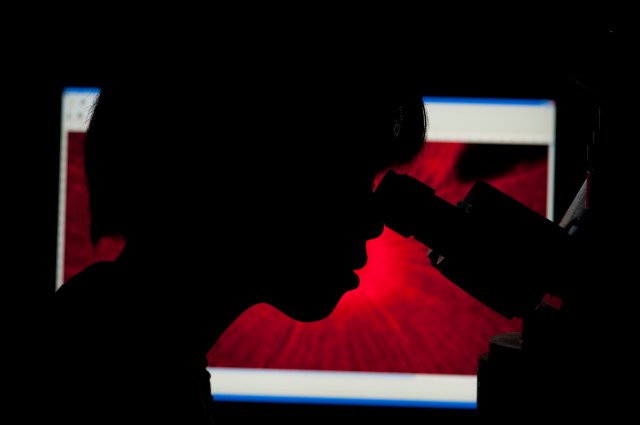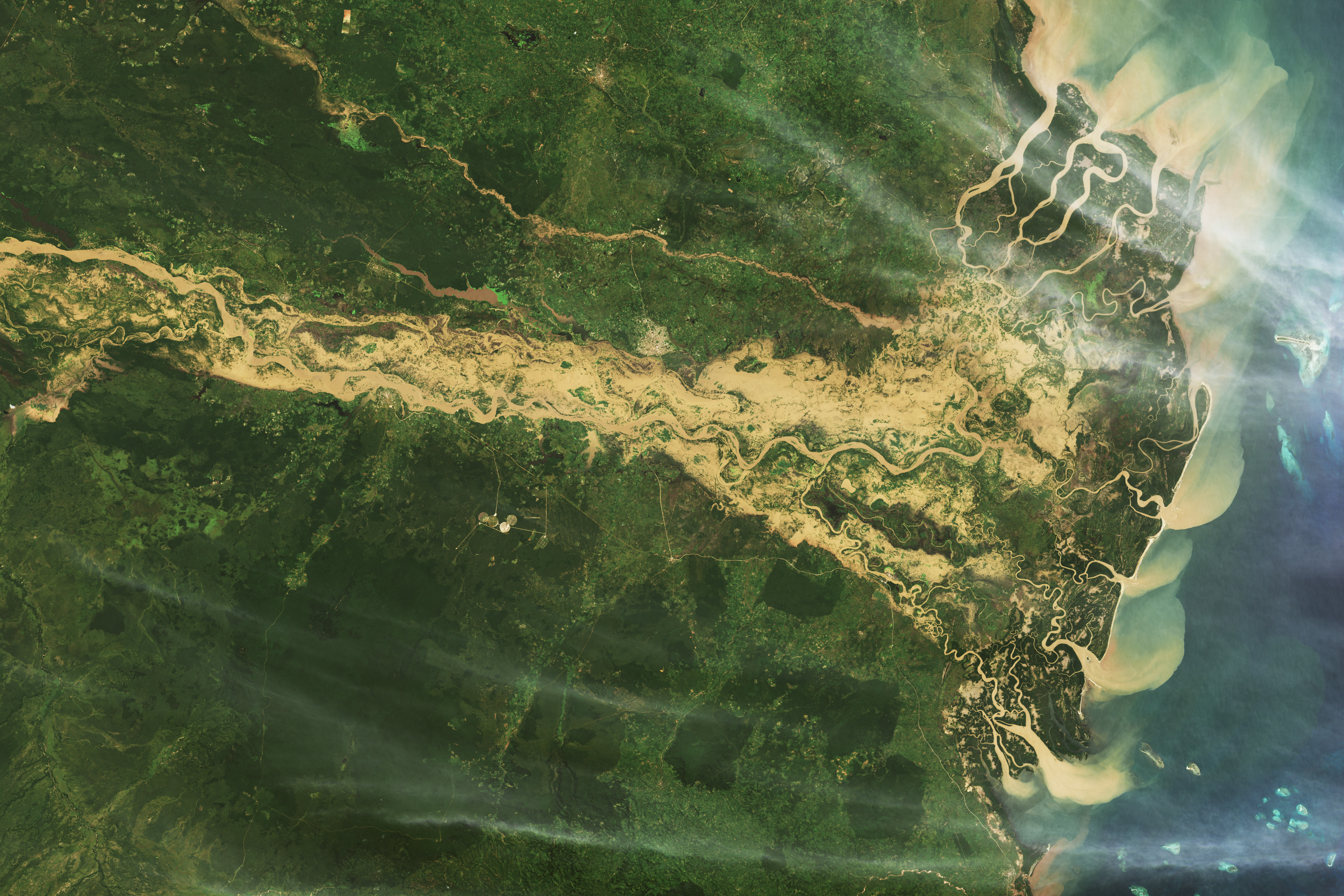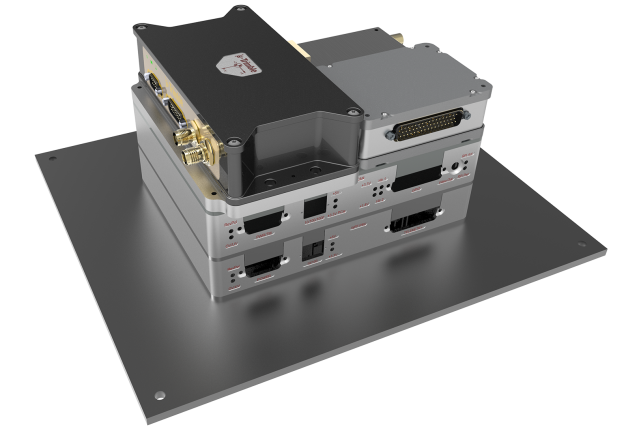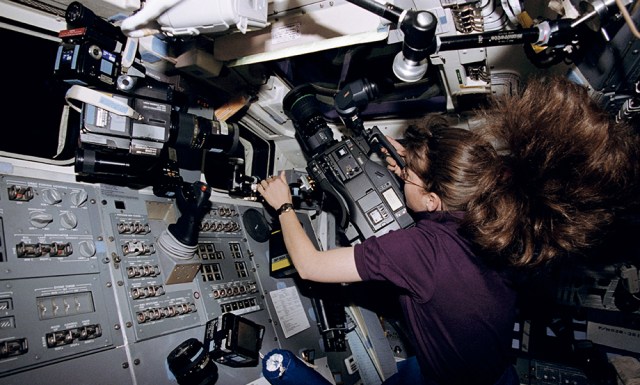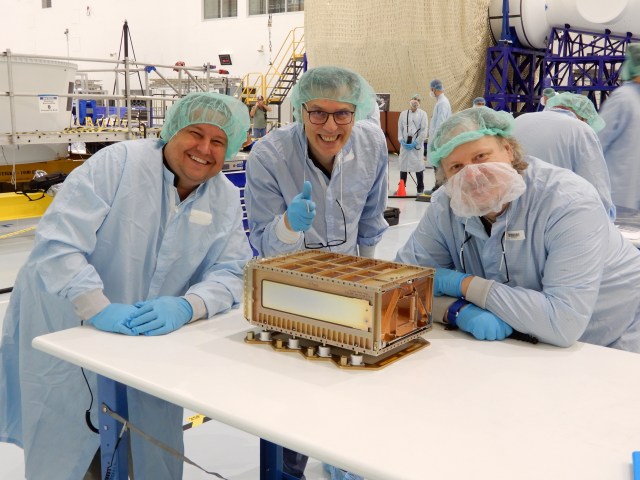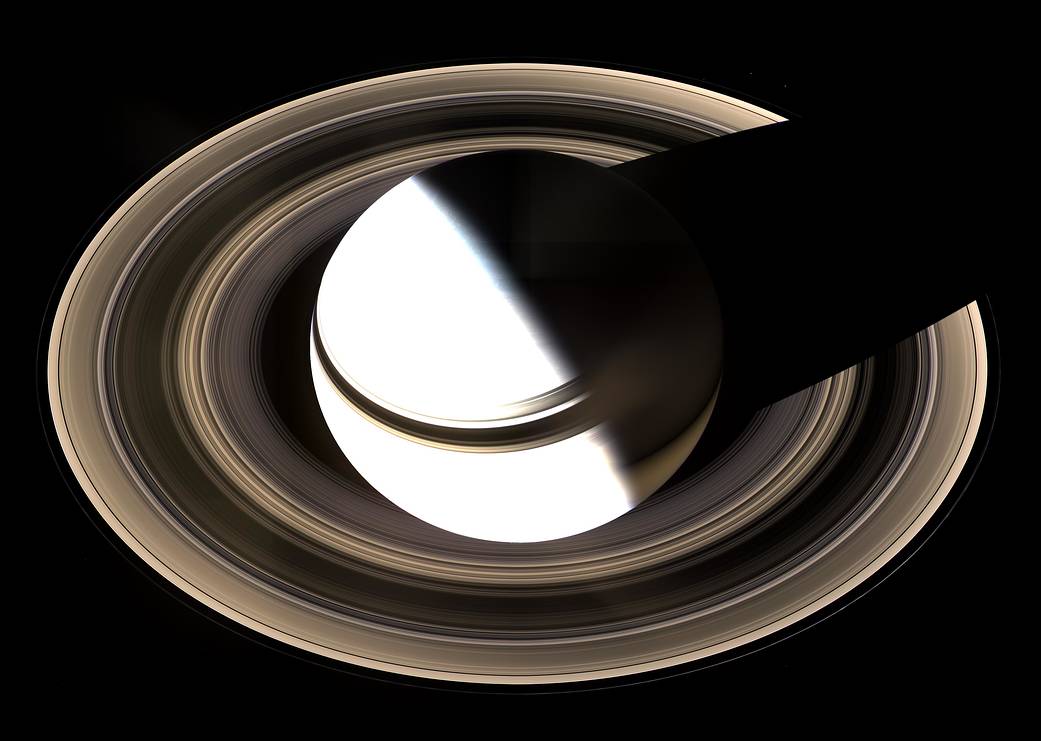Surely one of the most gorgeous sights the solar system has to offer, Saturn sits enveloped by the full splendor of its stately rings.
Taking in the rings in their entirety was the focus of this particular imaging sequence. Therefore, the camera exposure times were just right to capture the dark-side of its rings, but longer than that required to properly expose the globe of sunlit Saturn. Consequently, the sunlit half of the planet is overexposed.
Between the blinding light of day and the dark of night, there is a strip of twilight on the globe where colorful details in the atmosphere can be seen. Bright clouds dot the bluish-grey northern polar region here. In the south, the planet’s night side glows golden in reflected light from the rings’ sunlit face.
Saturn’s shadow stretches completely across the rings in this view, taken on Jan. 19, 2007, in contrast to what Cassini saw when it arrived in 2004 (see PIA05429).
The view is a mosaic of 36 images – that is, 12 separate sets of red, green and blue images – taken over the course of about 2.5 hours, as Cassini scanned across the entire main ring system.
This view looks toward the unlit side of the rings from about 40 degrees above the ring plane.
The images in this natural-color view were obtained with the Cassini spacecraft wide-angle camera at a distance of approximately 1.23 million kilometers (764,000 miles) from Saturn. Image scale is 70 kilometers (44 miles) per pixel.
The Cassini-Huygens mission is a cooperative project of NASA, the European Space Agency and the Italian Space Agency. The Jet Propulsion Laboratory, a division of the California Institute of Technology in Pasadena, manages the mission for NASA’s Science Mission Directorate, Washington, D.C. The Cassini orbiter and its two onboard cameras were designed, developed and assembled at JPL. The imaging operations center is based at the Space Science Institute in Boulder, Colo.
For more information about the Cassini-Huygens mission visit http://saturn.jpl.nasa.gov. The Cassini imaging team homepage is at http://ciclops.org .
Credit: NASA/JPL/Space Science Institute

